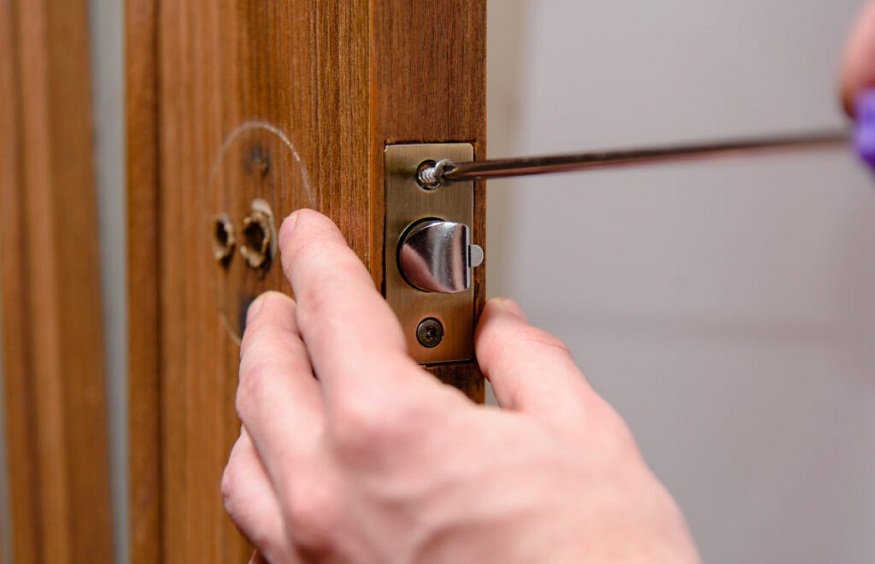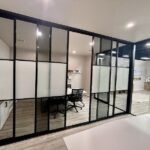 With rising crime rates and increasingly sophisticated security breaches, choosing the right locks can seem like a complex task. Whether you’re securing a family home or safeguarding a place of business, the choices you make will directly impact your peace of mind and the protection of those you care about. This guide will walk you through eight practical and essential tips for selecting the best lock options to maximize safety at both home and work. You can also contact a locksmith Melbourne to minimize your hassle.
With rising crime rates and increasingly sophisticated security breaches, choosing the right locks can seem like a complex task. Whether you’re securing a family home or safeguarding a place of business, the choices you make will directly impact your peace of mind and the protection of those you care about. This guide will walk you through eight practical and essential tips for selecting the best lock options to maximize safety at both home and work. You can also contact a locksmith Melbourne to minimize your hassle.
1. Evaluate Your Security Needs
Before you start shopping for locks, you need to determine your specific security requirements. Every location is unique, and a one-size-fits-all approach can leave you vulnerable to threats. For a home, you might want a lock that balances security with convenience, while for a business, durability and access control may take priority.
Assess the entry points at your home or workplace. Consider the nature of the items or people you’re protecting and identify the level of risk for each point of entry. A main entrance might need a high-security lock, while less frequently used doors could benefit from simpler options. Don’t forget to think about windows, side doors, and other secondary access points.
Once you’ve identified your security needs, focus on finding locks that match these requirements. Consider factors like ease of use, integration with other security systems, and the types of keys or codes that best suit your lifestyle or business operations.
2. Choose the Right Type of Lock for Each Location
Different types of locks offer varying levels of security and functionality. Selecting the right kind of lock for each door or entry point is critical for maximizing protection. Some common lock types include deadbolts, padlocks, smart locks, and mortise locks, each with its own strengths and limitations.
Deadbolts are a popular choice for exterior doors because they provide a high level of security against forced entry. They come in single-cylinder and double-cylinder varieties, and understanding the differences between them can help you make an informed choice. Mortise locks offer durability and strength for commercial properties.
Smart locks are a modern option that allows for keyless entry and remote access. They are ideal for tech-savvy homeowners or businesses that require regular access by multiple users. Evaluate each type of lock based on its suitability for the specific door or entry point you’re securing, and consider mixing different lock types for maximum security.
3. Focus on Lock Quality and Durability
When it comes to security, quality and durability are non-negotiable. Investing in high-quality locks ensures that they withstand daily wear and tear and attempts at forced entry. While high-quality locks might come with a steeper price tag, they’re often worth the investment in the long run.
Look for locks made from sturdy materials, such as hardened steel or brass, as these can resist drilling, picking, and other forms of tampering. Research the brand’s reputation and read customer reviews to get an idea of the lock’s longevity and effectiveness. Avoid low-quality or unbranded options, as they may not offer the same level of protection.
Also, consider environmental factors. If you’re securing a lock outdoors, make sure it is resistant to weather elements like rain, humidity, and extreme temperatures. A durable, weather-resistant lock will last longer and require fewer replacements, adding an extra layer of security to your property.
4. Opt for Locks with High-Security Ratings
Locks come with various ratings that indicate their level of security. These ratings are based on factors like strength, durability, and resistance to tampering. Choosing locks with high-security ratings ensures you’re getting the best protection available.
ANSI ratings, for example, classify locks into Grades 1, 2, and 3. Grade 1 locks offer the highest level of security and are generally recommended for commercial properties, though they can also be used for homes. Grade 2 locks are suitable for residential settings, while Grade 3 locks offer basic security and may be appropriate for interior doors.
High-security ratings may add to the cost, but they provide peace of mind knowing your locks are tested to withstand forced entry and tampering. Investing in these ratings enhances security and may demonstrate to insurers that you’re taking responsible precautions, which could lower insurance premiums.
5. Consider Key Control and Duplication Policies
Key control is crucial for both home and business security. Locks with restricted keyways make it difficult to copy keys without your authorization, providing an extra layer of security.
If you’re securing a workplace where multiple people need access, look for locks that offer master key systems. These allow specific individuals access to all areas while limiting access to others. Residential properties might also benefit from restricted keyways, especially if you frequently lend keys to guests or service providers.
Be wary of standard locks that allow unrestricted duplication. While convenient, these can lead to unauthorized access if someone makes a copy of your key without permission. Instead, choose locks from reputable brands with established key control policies, as this can make a significant difference in your overall security.
6. Take Advantage of Smart Lock Technology
Smart locks have revolutionized home and business security by allowing for keyless entry, remote access, and integration with other smart devices. With a smart lock, you can unlock doors with your smartphone, assign temporary access codes, and monitor who enters and exits your property.
For busy households or workplaces, smart locks provide convenience and flexibility, as they eliminate the need for physical keys and reduce the risk of losing them. You can even set alerts to notify you when specific users access the property, adding an extra layer of monitoring.
When choosing a smart lock, ensure it has robust encryption and security features to prevent hacking. Additionally, check for compatibility with other smart home or office devices you may already use. Investing in a smart lock with strong security protocols can give you more control and greater peace of mind.
7. Assess Installation Complexity and Requirements
The complexity of lock installation varies depending on the type of lock you choose. While some locks, like deadbolts or padlocks, are relatively simple to install, others, such as mortise locks or certain smart locks, may require professional installation to ensure proper functionality.
Consider whether you have the tools and skills necessary to install the lock yourself or if hiring a locksmith is the better option. Improper installation can compromise a lock’s effectiveness, leaving your property vulnerable to break-ins. If you’re securing multiple entry points, professional installation might be worthwhile to ensure all locks are fitted correctly.
Remember to factor installation costs into your budget, as certain types of locks, particularly high-security or electronic ones, may require additional labor. Weigh the benefits of a DIY approach against the security risks and choose the option that best meets your needs and ensures reliable protection.
8. Review the Lock’s Tamper-Resistance Features
Tamper-resistance is essential for any security-focused lock, as it prevents burglars from using brute force or lock-picking techniques to gain entry. High-quality locks often come with anti-pick, anti-drill, and anti-bump features that make them more challenging to bypass.
Research the tamper-resistance features of each lock before making a decision. Look for a combination of technologies that will deter thieves and withstand physical attacks. Prioritizing these features will make your home or business significantly harder to infiltrate.
The Bottom Line
Choosing the right lock is an essential step in securing your home and workplace. Each entry point you secure is an investment in safety. Hopefully, these tips will help you to select the right locks for your doors.






Leave a Reply
You must be logged in to post a comment.